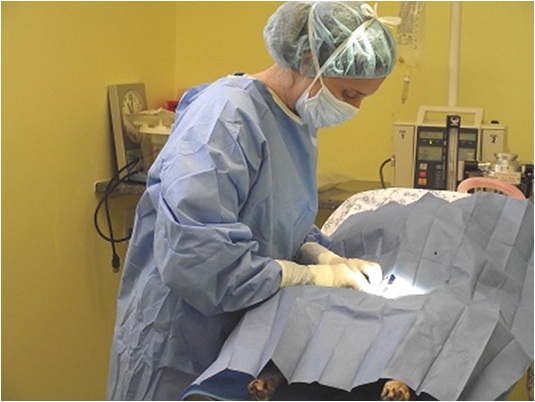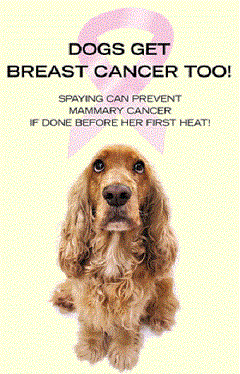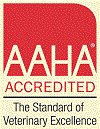 |
Surgery can be a source of anxiety and stress for many pet owners. Maybe you worry about whether your pet will be well cared for, or perhaps you have concerns about adequate precautions and monitoring. Let us address your concerns. Whether your pet needs minor surgery or a complex procedure, call us. Let’s discuss how our surgical services can benefit your pet.
Our staff is highly skilled in performing veterinary surgeries and will make every effort to ensure that your pet receives the very best care. Our focus on patient safety, pain management, and employing the most current surgical practices is designed to exceed your expectations and put your concerns to rest. Our staff of compassionate, caring professionals will monitor your pet before, during, and after surgery and will take exceptional care to ensure a safe and complete recovery for your pet. We will also address any questions or concerns you may have about surgery, including concerns about anesthesia, pain management, or postoperative care.
When your pet is ready to go home, we will review your postoperative care and medication instructions. If any questions arise after your pet returns home or at any other time during the postoperative period, call us. We welcome your questions and will do all we can to help your pet recover fully. Help is only a phone call away. |
Spay and Neuter
During your pet's life, you'll make many important healthcare decisions. One of the best choices you can make is to spay or neuter your dog or cat. Scheduling this important surgery early in your pets' life helps prevent many future problems, among them cancer of their productive organs; such behavior problems as fighting, roaming, marking and pet overpopulation.
Spays (which are technically known as ovariohysterectomies) and neuters are routine and generally safe, but they are major surgeries that require general anesthesia, pain medications, careful monitoring during and after anesthesia, and an all-day stay.
Spays and neuters are usually performed when the pet is 3 to 4 months old. Your veterinarian at Dunedin Animal Medical Center will discuss surgical options with you and help you decide the right time for your pet.
Spay & Neuter Aftercare
Spay and Neuter Surgeries are generally sent home the same day read more...
dr parra needs to finish this area
|
Why Should I Spay or Neuter my Dog?
Pet Population Control. Between four million and six million pets are euthanized every year because they are homeless.
Better health. A dog that is spayed or neutered has no chance of developing uterine or testicular cancer; in females, the risk of breast cancer and urinary infections is drastically reduced. Reproductive cancers are common among older dogs that have been bred.
Better behavior. Male dogs that are neutered when young are much less likely to roam, mark their territory (and your belongings) with urine, and show aggression toward other male dogs. Intact (unneutered) male dogs will go to great lengths to get to a female dog in heat—they will dig their way out of yards, break fences and leashes, and cross streets in heavy traffic if a female in heat is in the area.
Easier care. An unspayed female bleeds for about 10 straight days twice a year. She bleeds on your carpet, your furniture, the interior of your car, and on the ground outside. As soon as she has marked your yard, you can anticipate a constant parade of male dogs who will pace your lawn, howl, and bark. You have a fenced yard? They will dig their way in.
No accidental pregnancies. If your dog accidentally becomes pregnant, you will have to provide additional medical care—for her and the puppies—and be responsible for finding good homes for half a dozen or more offspring.
Appointments 727-738-2273 |
 |
 |
Why Should I Spay or Neuter my Cat?
Pet Population Control. Between four million and six million pets are euthanized every year because they are homeless.
Better health. Breast cancer is the third most common cancer in cats. A cat that is spayed or neutered has no chance of developing uterine or testicular cancer; in females, the risk of breast cancer and urinary infections is drastically reduced. Reproductive cancers are common among older cats that have been bred.
Better behavior. Male cats that are neutered when young are much less likely to roam, mark their territory (and your belongings) with urine, and show aggression toward other male cats. Intact (unneutered) male cats will go to great lengths to get to a female cat in heat—they will roam, fight with other male cats. and cross streets in heavy traffic if a female in heat is in the area.
No accidental pregnancies. If your cat accidentally becomes pregnant, you will have to provide additional medical care—for her and the kittens—and be responsible for finding good homes for half a dozen or more offspring.
Appointments 727-738-2273 |
|
|





